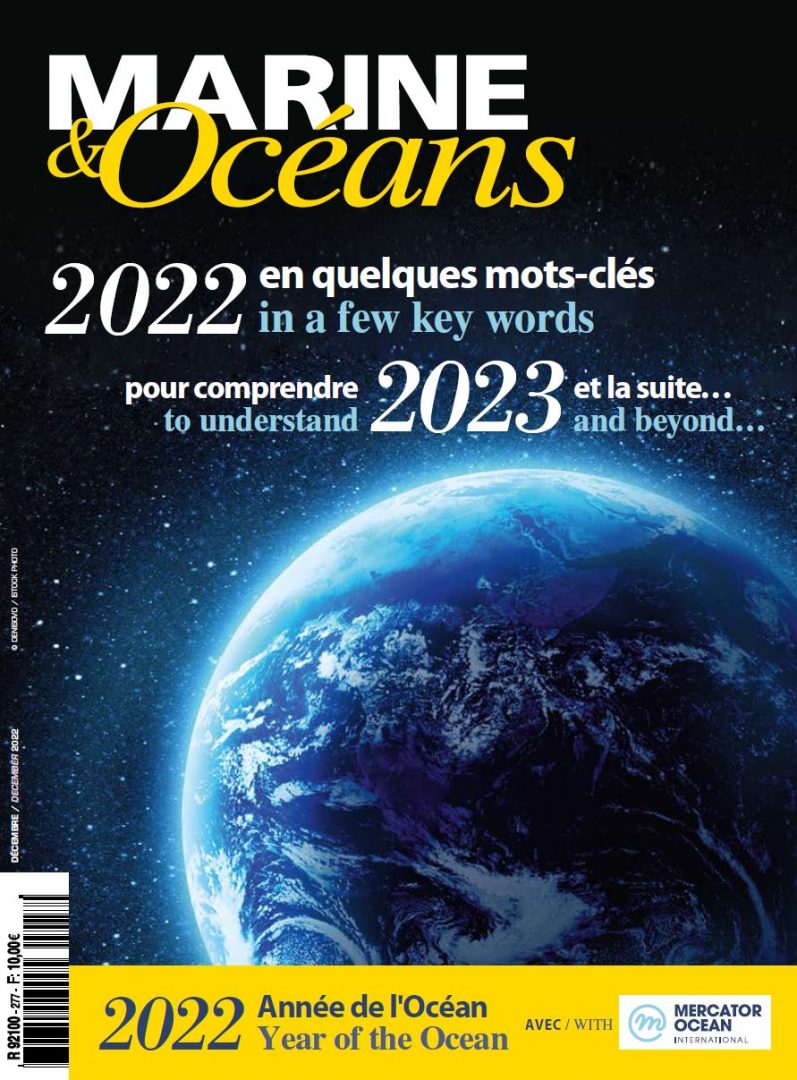“We have a much work to do”
Interview by Bertrand de Lesquen
* * *
You are the UNSG’s Special Envoy for the Ocean. What does this title consist of?
As the UNSG’s Special Envoy for the Ocean I am responsible for leading the drive to implement SDG14, the UN’s Sustainable Development Goal aimed at conserving and sustainably using the Ocean’s resources(1).
What objective assessment can be drawn six years after its adoption, given the damage that continues to be done to the Ocean?
The Sustainable Development Goals were consensually adopted by the UN Member States in 2015. Compared to how the situation was prior to SDG14’s adoption, we can now see that interest in the Ocean issues is flourishing around the world. Progress is tangible in Ocean literacy and there is much greater awareness of Ocean problems requiring solutions; the coverage of marine protected area is growing steadily, as is scientific knowledge of the Ocean. But truth be told, how can we claim anything near success when a third of assessed global fish-stocks are being overfished; when we have dumped around 150 million metric ton of plastic waste, micro-plastics and discarded fishing gear into the Ocean; and the rates of Ocean acidification, deoxygenation and warming continue to head in the wrong direction? Therefore, we have much work to do.
The UN has just officially launched the Decade of Ocean Science? Why ten years? Why the next ten years?
The UN Decade of Ocean Science for Sustainable Development commenced this year and will run until 2030. Why do we need this decade of intense focus on Ocean Science? The answer is that we have a serious gap in scientific knowledge about the Ocean and we have given ourselves ten years to fill that gap. The great majority of the Ocean is unknown to science, which is rather astonishing when you consider the Ocean covers more than 70% of the planet’s surface and hosts the majority of life on this planet. My personal view is that by 2030 we will have to take some very important decisions about our relationship with Nature and the planet upon which we live. We will need to base those decisions on the very best of science, which must surely include a full knowledge of the Ocean’s properties.

This Decade will take place in parallel with many other initiatives: The High-Level Panel for a Sustainable Ocean initiated notably by Mrs. Erna Solberg, Prime Minister of Norway; Starfish 2030 initiated by Pascal Lamy; Antarctica2020 by Mrs. Geneviève Pons… How do you perceive all these initiatives? How do they fit together?
You have mentioned some of the very important processes and initiatives addressing the problems, solutions and potential pertaining to the Ocean. There are many more and I should of course mention the UN’s BBNJ Intergovernmental Conference(2) to create new international law to conserve and sustainably use marine biological diversity beyond national jurisdictions. In answer to your question, while they all operate according to their own mandates, they do all come together under the universally agreed targets of SDG14. This is where the UN Ocean Conference in support of SDG14 is so vital to progress, whether we are talking pollution, fisheries, science or law, all are featured. The next UN Ocean Conference will be held in Lisbon in 2022.
How do you work with the European Union, which has the world’s largest maritime domain ?
I work with the EU as with all UN Member States and Observers, in a proactive way to encourage implementation of SDG14. Whether it is in the field of establishing Marine Protected Areas (for example the proposed Antarctica MPAs), or the eradication of harmful fisheries subsidies through WTO negotiations, the EU has a very important role to play. My EU connections are principally carried out through the European Commission’s DG MARE in Brussels and the Head of the EU’s Delegation at the UN in New York.

In your opinion, what are the international community’s top priorities for the Ocean today and how can we achieve definitive solutions?
The global priorities for resolving the Ocean’s problems are contained within SDG14. Solve those problems – from rampant pollution to over-fishing, from acidification to lawlessness – and we will put a stop to the cycle of decline in which the Ocean has been caught. In the course of my work I put particular emphasis on anthropogenic greenhouse gases as the Ocean’s great nemesis. These GHG gases are causing Ocean acidification, deoxygenation and warming, all of which make survival increasingly difficult for organisms living under the waves. The current rate at which we are pumping these gases into the planet’s atmosphere has us on track, through acidification and warming, to exterminate all living coral reefs before the end of this century.
According to UN forecasts and statistics, the world population is expected to reach 8.5 billion people in 2030, 9.7 billion in 2050 and… 11.2 billion in 2100. How can we reconcile the needs of such a population – whose resources reside and will reside tomorrow largely under the sea – with the protection of the Ocean? Can we be reasonably optimistic?
We can be reasonably optimistic, but more usefully we can be doggedly pragmatic in identifying the innovations and solutions required. I have no doubt the Sustainable Blue Economy can give us all the renewable energy, new medicines, and healthy nutrition we need for a secure future. But this will require a huge shift in financial flows into new sustainable forms of aquaculture, with particular emphasis on non-fed aquaculture(3); into the greening of shipping; the establishment of offshore wind farms; an upsurge in Ocean science and research; ensuring all EEZs are governed according to Sustainable Ocean Plans; and the placement of at least 30% of the Ocean and coastal areas into effective zones of environmental protection.
You are Fijian. Does the great awareness of many Pacific states and islands on the impacts of global warming give you a particular perspective on these issues?
Pacific Islanders have long been aware of the perils of global warming through rising sea levels, death of coral and shifting ecosystems. That is why we have been at the international forefront of measures to address Climate Change and the decline in the Ocean’s health.

ENDNOTES
- In 2015, the UN adopted Agenda 2030, which includes 17 goals to be achieved by that date, mainly to eradicate poverty, protect the planet and ensure prosperity for all.
- BBNJ for Biodiversity Beyond National Jurisdiction
- These are cultures of species that do not require feeding, able to grow on microscopic life, light and nutrients naturally available in the water. Some examples of such species are mollusks (like oysters and mussels) and crayfish!


